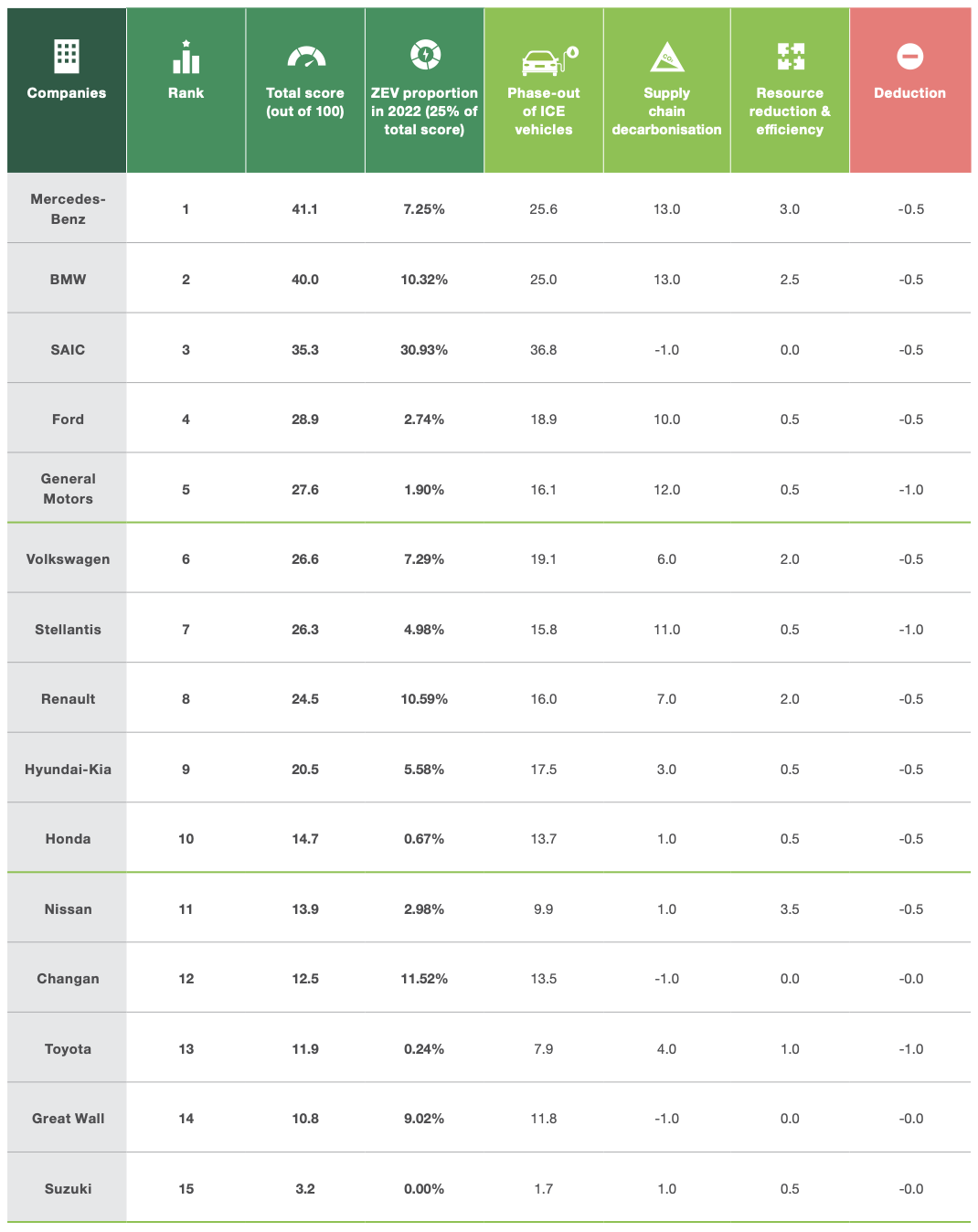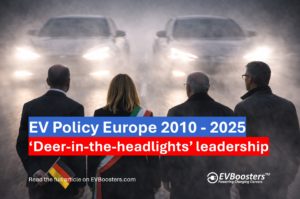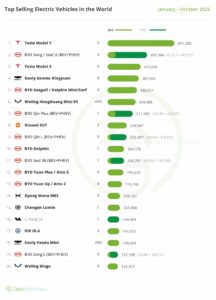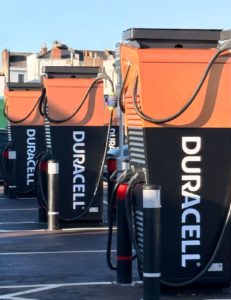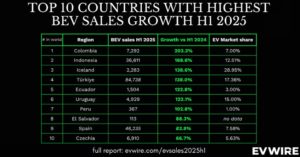Despite the climate crisis intensifying, with 2022 marked by devastating climate events, the global transport sector’s carbon emissions rose by 2.1%, with ground transport accounting for 17.9% of global emissions. Passenger vehicles remain the largest contributors within the sector.
According to Greenpeace traditional carmakers are losing market share to EV-focused companies due to increasing consumer demand for EVs and regulatory pressures to reduce tailpipe emissions. In 2022, the world’s 15 largest traditional automakers sold 55.5 million fossil fuel vehicles, a staggering 94.4% of their total sales, compared to just 3.3 million ZEVs.
Sector-wide findings reveal that while ZEV sales are increasing, with a jump from 2.2 million units in 2021 to 3.3 million in 2022, traditional automakers have failed to significantly boost ZEV sales outside China and Europe. Moreover, the surge in SUV sales poses a major climate threat due to their high energy consumption.
Mercedes-Benz and BMW topped the 2023 rankings, but their rate of increasing ZEV sales and phasing out ICE vehicles is not aligned with the 1.5°C global temperature limit. Toyota, one of the lowest-ranked companies, sold fewer than one in 400 vehicles as ZEVs in 2022, showing a slow transition to EVs.
Greenpeace demands that automakers speed up the ICE phase-out, promote renewable energy charging, and fast-track steel decarbonisation. It calls for an end to the sale of ICE vehicles in major markets before 2030 and in Europe by 2028, emphasising the need for a just transition that protects workers’ benefits.
Greenpeace’s findings highlight the critical juncture at which the automotive industry stands, with a clear need for more ambitious decarbonisation targets and actions to align with the Paris Agreement and combat the climate crisis effectively.
Source: Auto Environmental Guide 2023 | Greenpeace
